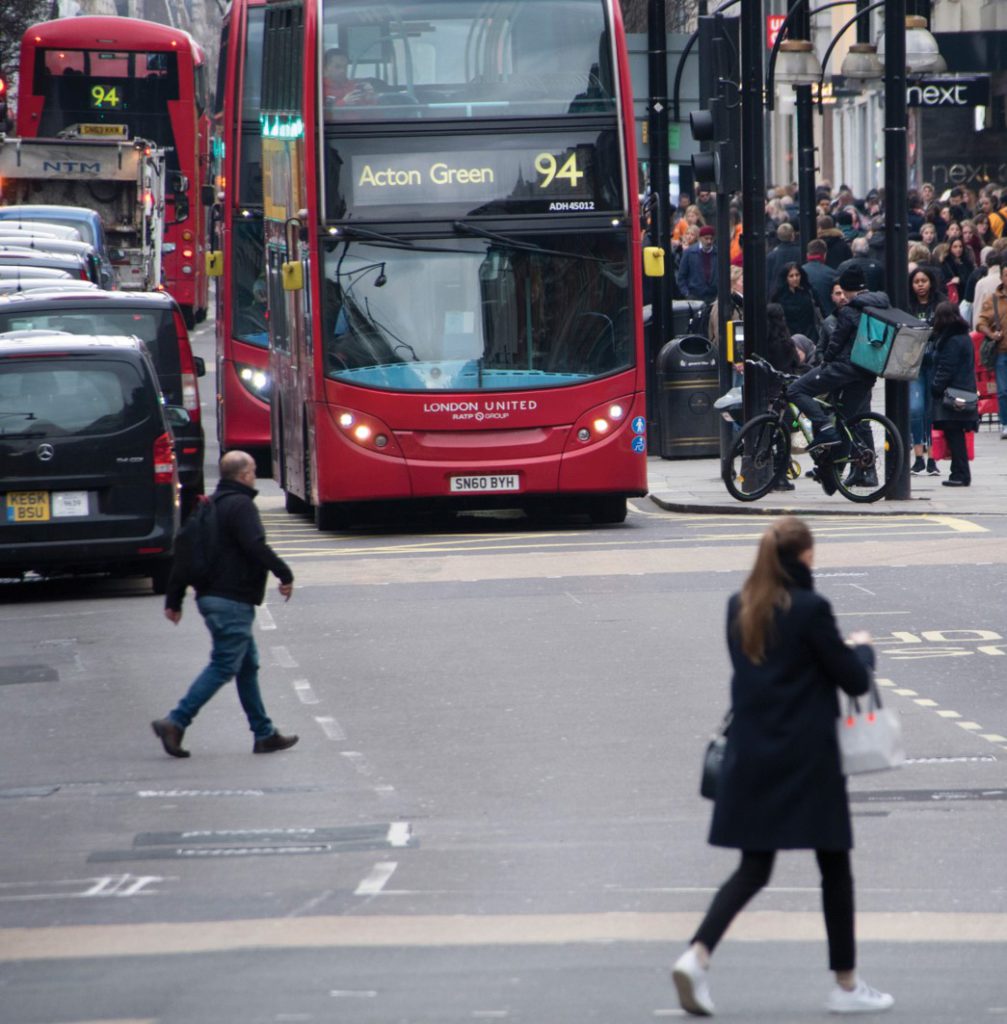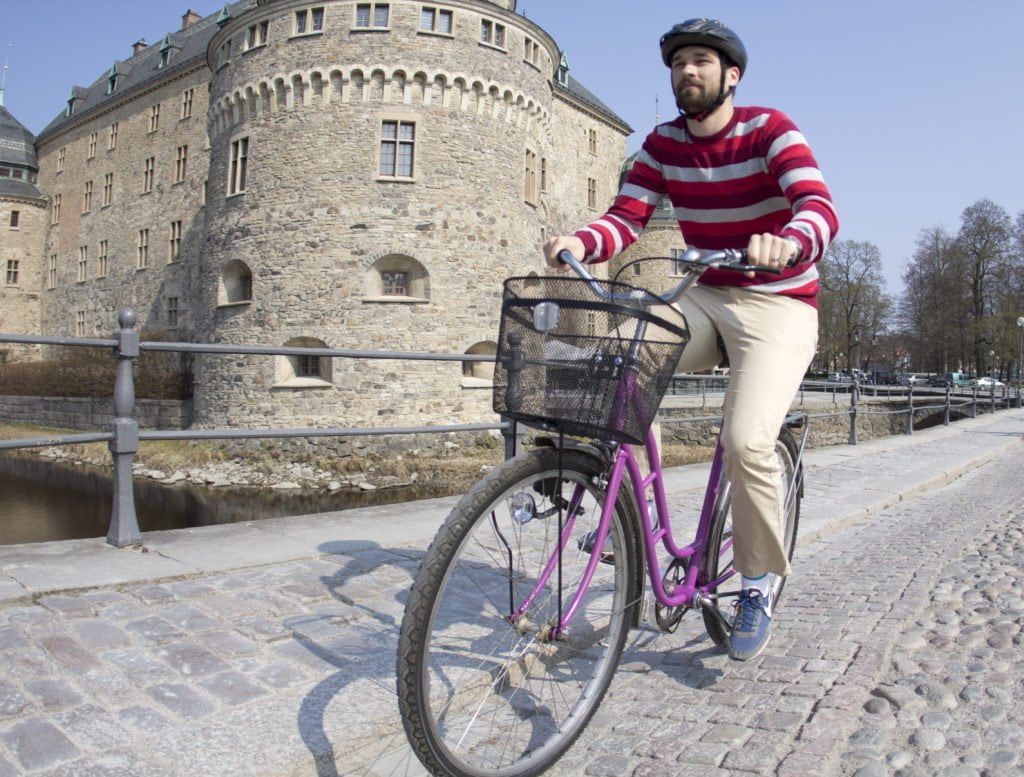European Cities Could Avoid up to 10,000 Premature Deaths by Expanding Cycling Networks
A study led by researchers from the Barcelona Institute for Global Health (ISGlobal), a centre supported by the ”la Caixa” Foundation, has found that expanding designated cycling networks in cities could provide considerable health and economic benefits.
The analysis – part of European Commission funded Physical Activity through Sustainable Transport Approaches (PASTA) project - of data from 167 European cities suggests that the length of cycling infrastructures is associated with a cycling mode share of up to 24.7%, in which 1 in every 4 citizens would choose the bicycle for their daily commuting. The study, published in Preventive Medicine, estimates that if all the assessed cities achieved a 24.7% bicycle mode share, over 10,000 premature deaths could be avoided annually.
“This is the first study evaluating the potential associations between cycling network length, mode share and associated health impacts across European cities”, states Natalie Mueller, ISGlobal researcher and first author of the paper. The health impact assessment conducted showed that a routine shift in the transport mode to cycling is positive for health due to the associated increase in physical activity, “whose benefits outweigh detrimental effects of air pollution and traffic incidents”, adds Mueller.
The greatest health benefits among the different estimations made by the researchers were found in a scenario where the assessed cities had bike lanes in all their streets. In that case, London could avoid up to 1,210 premature deaths yearly, followed by Rome with 433 premature deaths yearly and Barcelona with 248 premature deaths yearly. However, already a 10% increase in designated cycling infrastructure was estimated to lead to significant increases cycling and resulted in 21 premature deaths preventable in Rome, 18 in London and 16 in Barcelona.
The researchers also performed an economic analysis to compare the costs of increasing cycling networks with the estimated economic benefits of avoided premature mortality. Results show that the best cost-benefits ratios would be met in a scenario of a 10% increase in the cycling network, in which the ratio of benefits per euro spent would be up to 70 to 1 in the case of Rome, 62 to 1 in the case of Zurich and 35 to 1 in the case of Barcelona.

“Even though we did not consider other determinants of cycling and cannot infer causality here, we simply like to express that cycling networks should be high up on the agendas of city governments which have direct local accountability for providing ‘healthy choices’ to their citizens”, reflects Mark Nieuwenhuijsen, coordinator of the Urban Planning, Environment and Health Initiative of ISGlobal and last author of the study. According to the study, especially cities with a currently low cycling mode share (such as Rome, Barcelona and London), have great potential to increase the daily use of the bicycle just by expanding their cycling networks. “Already a 10% increase in cycling infrastructure, which we perceive as an achievable policy for city governments, most likely provides considerable health and economic benefits”, adds Nieuwenhuijsen.
“Once again we can see that getting people out of their own cars produces great health benefits. A combination of ‘push’ measures that make cars unattractive and ‘pull’ policies aimed at making public transport and cycling more appealing would be best to improve health and wellbeing in European cities”, concludes researcher Natalie Mueller.
Reference
Natalie Mueller, David Rojas-Rueda, Maëlle Salmon, David Martinez, Albert Ambros, Christian Brand, Audrey de Nazelle, Evi Dons, Mailin Gaupp-Berghausen, Regine Gerike, Thomas Götschi, Francesco Iacorossi, Luc Int Panis, Sonja Kahlmeier, Elisabeth Raser, Mark Nieuwenhuijsen, on behalf of the PASTA consortium. Health impact assessment of cycling network expansions in European cities. Preventive Medicine, January 2018, doi.org/10.1016/j.ypmed.2017.12.011
Some further infographics.
About ISGlobal
The Barcelona Institute for Global Health, ISGlobal, is the fruit of an innovative alliance between academic, government, and the "la Caixa" Foundation to contribute to the efforts undertaken by the international community to address the challenges in global health. ISGlobal is a consolidated hub of excellence in research that has grown out of work first started in the world of health care by the Hospital Clínic and the Parc de Salut MAR and in the academic sphere by the University of Barcelona and Pompeu Fabra University. The pivotal mechanism of its work model is the transfer of knowledge generated by scientific research to practice, a task undertaken by the institute’s Education and Policy and Global Development departments. ISGlobal a member of the CERCA programme of the Generalitat de Catalunya.
About PASTA project
The EU-funded project PASTA - Physical Activity Through Sustainable Transport Approaches - aims to connect transport and health by promoting active mobility in cities (i.e. walking and cycling) including in combination with public transport use) as an innovative way of integrating physical activity into our everyday lives.
For more inforamation, please visit the project website www.pastaproject.eu or contact Florinda Boschetti, e:mail: FBoschetti@polisnetwork.eu




